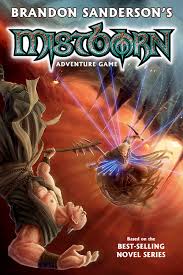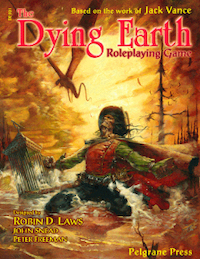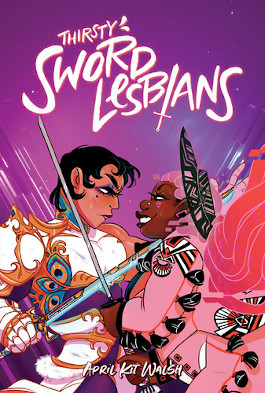
Kult is a contemporary horror role-playing game originally created by Gunilla Jonsson and Michael Petersén with illustrations by Nils Gulliksson, first published in Sweden by Äventyrsspel in 1991. Kult is notable for its philosophical and religious depth as well as for its mature and controversial content.

GNS theory is an informal field of study developed by Ron Edwards which attempts to create a unified theory of how role-playing games work. Focused on player behavior, in GNS theory participants in role-playing games organize their interactions around three categories of engagement: Gamism, Narrativism and Simulation.

Ronald Edwards is a game designer involved in the indie role-playing game (RPG) community, and a game theorist. He created the Sorcerer role-playing game, the GNS theory of gameplay, and The Big Model. Edwards is also co-founder of The Forge, an online community to support indie RPG design and publication.

InSpectres is a humorous paranormal investigation-themed role-playing game created by Jared Sorensen and independently published by Memento Mori Theatricks. The game's story line follows the player's work in a supernatural investigation and elimination company.

James Bond 007: Role-Playing In Her Majesty's Secret Service is a spy fiction tabletop role-playing game based on the James Bond books and films. It is designed by Gerard Christopher Klug and was published by Victory Games, a subsidiary of Avalon Hill. The game and its supplements were published from 1983 until 1987, when the license lapsed. At its time of publication, it was the most popular espionage role-playing game.
Weapons of the Gods is a wuxia role-playing game based in an ancient Chinese setting. Created by Brad Elliott and Rebecca Borgstrom, Weapons of the Gods is published by Eos Press and is a license from the Hong Kong manhua by Wong Yuk Long of the same name. The first supplement for the game, The Weapons of the Gods Companion, was due out in Winter 2006 but was delayed and ultimately released in December 2007.

Dragon Warriors is a fantasy role playing game (RPG) system written by Dave Morris and Oliver Johnson and published by Corgi Books in 1985 and 1986. In 2009, it was re-collected in a new hardcover edition by Mongoose Publishing. This print run included the publication of several supplements to the Dragon Warrior's world "Legend". However, as of September 2010, this publication run had been discontinued but the books continue to remain available in PDF format.
Sword World RPG is a Japanese tabletop role-playing game created by Group SNE. 10 million copies of the related books including rulebooks, novels and replays have been sold. The game was first published in 1989; the updated edition, known as the "Sword World 2.0", was published in 2008; the current edition "Sword World 2.5" was published in 2018.

Arianrhod RPG is a Japanese fantasy role-playing game released in 2004. At present, Arianrhod RPG is one of the most popular traditional RPG in Japan along with Sword World 2.0, Alshard and Dungeons & Dragons. The related books including rulebooks, supplements, replays and novels were published 59 books until November 2010.

Eldritch Wizardry is a supplementary rulebook by Gary Gygax and Brian Blume, written for the original edition of the Dungeons & Dragons (D&D) fantasy role-playing game, which included a number of significant additions to the core game. Its product designation is TSR 2005.

Starfaring was the first science fiction role-playing game (RPG) published, released by Flying Buffalo in August 1976. Although it was the first to market, it didn't attract an audience, and was soon superseded by the much more popular Traveller published the following year.

QAGS is a generic tabletop roleplaying game. Setting for this system have varied and ranged widely.
Wayfarers is a pencil and paper role-playing game (RPG) released in the fall of 2008 by the Ye Olde Gaming Companye (YOGC). It was created by Jimmy T. Swill and Gregory Vrill. The names Jimmy Swill and Gregory Vrill are used within the book as names for example characters.

The Gumshoe System is a role-playing game system created in 2007 by Robin Laws, designed for running investigative scenarios. The premise is that investigative games are not about finding clues, they are about interpreting the clues that are found. The Gumshoe System is used in various games published by Pelgrane Press. As a result of the Hillfolk kickstarter, the SRD for the Gumshoe System has been made available for use under two open licenses: the Open Game License (OGL) and Creative Commons Attribution.

The Mistborn Adventure Game is a pen-and-paper role-playing game published in 2011 by Crafty Games. It is a licensed release based on American author Brandon Sanderson's Mistborn novel series. Sanderson was involved in the game's creation. The game's setting, Scadrial, is the same as that of the Mistborn series. The initial Mistborn Adventure Game book was released on December 16, 2011. Since 2011, four supplementary material books have been published. The first supplement was released March 2014 and is called Terris: Wrought of Copper. The second supplement was released on August 7, 2014 and is called Alloy of Law, not to be confused with the fourth Mistborn book called The Alloy of Law. The third supplement was released on December 22, 2015 and is called Skaa: Tin & Ash. The fourth supplement is called The Alloy of Law: Masks of the Past and was released on August 8, 2017.

The Dying Earth Roleplaying Game is a tabletop role-playing game published by Pelgrane Press in 2001.
S/lay w/Me is a role-playing game published by Adept Press in 2009.
Edward P. Healy is a game designer who has worked primarily on role-playing games. He co-founded Eden Studios.

Fantasy Earth: Basic Rules is a role-playing game published in 1994 by Zody Games.

Thirsty Sword Lesbians is a narrative-focused tabletop role-playing game that emphasizes telling "melodramatic and queer stories". The game was funded via a 2020 Kickstarter campaign and published by Evil Hat Productions in 2021. It uses a modification of the Powered by the Apocalypse game system.















